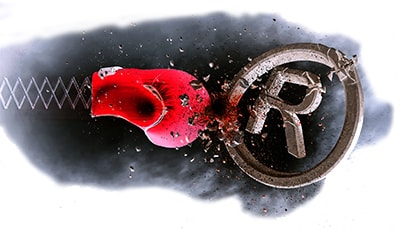The Tort of Trade Mark Passing Off Around the World
Introduction
 The reason trademarks are so crucial in the modern business world is due to how the customers and consumer loyalty work. Often, when considering a particular industry such as, for example, fast food, there will be specific names which come to mind immediately. However, the names are not the only thing that comes to mind. The image and branding associated with those names are just as ingrained into the minds of the people. Think of a burger, and the Golden Arches creep their way into the imagination, or perhaps Colonel Sanders will come to mind.
The reason trademarks are so crucial in the modern business world is due to how the customers and consumer loyalty work. Often, when considering a particular industry such as, for example, fast food, there will be specific names which come to mind immediately. However, the names are not the only thing that comes to mind. The image and branding associated with those names are just as ingrained into the minds of the people. Think of a burger, and the Golden Arches creep their way into the imagination, or perhaps Colonel Sanders will come to mind.
These images are incredibly recognisable and have their own draw. Driving down the motorway, one has but to catch a glimpse of one of these trademarked concepts, and their memories will fill out the remainder of the details. With such significant power, it should not come as a surprise that companies treat the topic with extreme protection.
Trademarks are a wide and varied topic as it stands, and one concept which we shall take a closer look at here is that of Passing-Off Trademarks. This concept only truly exists in the jurisdictions around the world which have a Common Law system.
The reason the idea of passing off is unique to the Common Law system is that it is a tort. Torts are civil wrongs caused by one party towards another, which gives rise to a loss for which the other party is liable. Likely the most common example of a tort is that of negligence, though there are a considerable number is total.
The tort of Passing-Off protects the name and image of a group by preventing others from causing misrepresentation. This misrepresentation would occur through the use of the Trademarked designs.
Important to note is the difference between Trademark infringement and Trademark Passing Off. Infringement is the more severe and usually more challenging to prove issue and can be treated as a civil or criminal matter depending on the seriousness of the breach. On the other hand, Passing Off relates more to cases where misrepresentation occurs, and Goodwill between parties is tarnished.
Expanding Upon the Tort of Passing Off
Successful Claims of Passing Off:
For a tortious claim to arise, Five elements must exist or have a breach. These five were introduced and brought into effect in the UK case of Ervan Warnink v Townend & Sons Ltd [1979] AC 371. In this case, a specific alcoholic drink was produced by the Claimant, which was known as Advocaat, and it was reasonably well known to the people. The defendant, in the case, delivers a similar drink with specific differences among the ingredients, and they named the product ‘Keeling’s Old English Advocaat’. The court utilised a particular set of criteria to decide whether the defendant’s drink was passing off as the Claimant. These were as follows:
- Was there misrepresentation by Townend;
- Was Townend a trader who partook in the specific trade;
- Did he sell to prospective customers;
- Were these practices aimed to impact the Goodwill of the Claimant negatively, and finally;
- Were there damages caused to the Claimant of substance.
These were the five criteria the court used, and through them, they found Townend to by in Breach of the tort of Pass Off.
These steps were summarised to be more practical by Lord Oliver, who summarised them into three points as follows:
- Is Goodwill Owed between the parties;
- Did misrepresentation Occur and;
- Was the Goodwill damaged?
These are still the necessary steps looked through by courts in dictating whether the tort of Pass Off has seen a breach or not.
 Another case on this topic is that of Danone Biscuits Manufacturing SDN BHD v HWA TAI Industries BHD of 2001. This case took place in Malaysia and involved a British biscuit manufacturer that had sold their brand of biscuits called ‘ChipsMore’ in the country. Their name had a substantial presence and image, and so it came as a surprise to them in 2001 when they discovered another brand of similar products developing a presence. The name of this brand was ‘ChipsPlus’, which bears a striking similarity to the British company. However, the packaging and branding were also all too similar.
Another case on this topic is that of Danone Biscuits Manufacturing SDN BHD v HWA TAI Industries BHD of 2001. This case took place in Malaysia and involved a British biscuit manufacturer that had sold their brand of biscuits called ‘ChipsMore’ in the country. Their name had a substantial presence and image, and so it came as a surprise to them in 2001 when they discovered another brand of similar products developing a presence. The name of this brand was ‘ChipsPlus’, which bears a striking similarity to the British company. However, the packaging and branding were also all too similar.
This case proceeded to the high court where the two products received deep analysis, and the court stated the following:
- The use of the word ‘Chips’ was of explicit importance as it was not the only or even most common term to use, and bore a significant similarity across the two brands.
- The names of both brands also have a single word following ‘Chips’ which produced a similar tone and structure to the name for which the British company held a Trademark.
- Further, the styling and designs of both products had similarities in terms of the fonts used and as well as the same structural use of capital and lower case letter with no spaces between the two words.
The British company sued and pursued both copyright infringement claims as well as Pass Off claims. The court decided that the similarities were too striking and the defence party intended to utilise the imagery and branding of the well-known and developed British company for their personal gain. Further to this, the similarities also could confuse the general public.
The court decided that there was an apparent infringement of the Trademark, though this was clear to see. On the topic of the Pass Off tort, there was also deemed to be a breach. The British Company had developed significant Goodwill in the region as its presence had arisen and developed over 20 years at the time. Due to the branding similarities, there was also clear misrepresentation by the defence party. As such, they were further liable as per the tort.
These claimants saw success in claims of the defence breaching the Tort of Pass Off, and their respective jurisdictions now have these cases as guidance and examples of this.
Unsuccessful Claim
The Australian case of Stone & Wood Group Pty Ltd v Intellectual Property Development Corporation Pty Ltd [2018] FCAFC 29 considered the dispute between two manufacturers of beer that were both established within the country.
The Claimant was a company based in the New South Wales Region of the country, and their business revolved around the sale of beer. There was a wide variety under their business umbrella, including a specific drink called ‘Pacific Ale’ which they had sold since 2010. It was also their bestselling product. The respondents, in this case, was the company Elixir. They were also producers of beer who were based in Melbourne, Victoria. Elixir launched a specific beer in 2015 which was called ‘Thunder Road Pacific Ale’ though this name received alteration in 2015 due to the demands of Stone & Wood. The alteration removed the word ‘Pacific’ from the name.
The case initially arose in 2015 with Stone & Wood claiming Pass Off and deceptive business practices on the part of Elixir, and the claim was later amended to include a Trademark infringement also. The respondents responded with a cross-claim for baseless threats and bringing forth an unfounded claim under Section 129 of the Trademark Act. The court found that the claims brought up were baseless and did not award anything under either infringement or Pass Off of Trademark concepts, and also agreed with Elixir’s cross-claim.
Following are descriptions of the two products and their appearance and also the regions in which they were primarily sold.
Stone & Wood ‘Pacific Ale’:
- Sold in Bottles, though this was not always the case. The original name of the bear was Draught Ale, though once the bottle was introduced, this no longer made sense and was changed;
- Sold across the eastern seaboard of Australia including New South Wales, Queensland Sydney and Melbourne.
Elixir ‘Thunder Road Ale’:
- Thunder Road is one of the Brands under Elixir, and the branding relating to this is heavily featured on the Bottles and kegs sold. This branding includes a depiction of the Norse God Thor and similar thunder related concepts
- Sold across New South Wales, Western Australia, Victoria and Tasmania.
The judge, in this case, found that Stone & Wood has a significant presence in the country with considerable sales occurring therein as well as a social media presence. The specific Pacific Ale also made up 80-85% of their total beer sales.
However, The Elixir beer had significantly different branding images which were entirely unrelated to Stone and Wood, which were said to be ‘significantly different’ by the judge. Further to this, it was produced using differing ingredients resulting in a different taste.
Elixir would have been aware of the presence of Pacific Ale and significant customer base, and so there was a balance to be found. In the end, the judge decided that Elixir was not attempting to take advantage of the image presented by Stone and Wood, and as such, there was no misrepresentation. As such there was found to be no Passing Off under Trademark.
Conclusion
 The concept of Passing-Off is one which has been primarily developed in the last few decades. These are some crucial cases in establishing what is and is not considered a breach of the tort. On a basic level, the purposeful misrepresentation must be determined by a court. Any attempt to take advantage of the image of an entity with developed Goodwill is also a must. As such, branding and designs of products play a significant role in deciding case outcomes.
The concept of Passing-Off is one which has been primarily developed in the last few decades. These are some crucial cases in establishing what is and is not considered a breach of the tort. On a basic level, the purposeful misrepresentation must be determined by a court. Any attempt to take advantage of the image of an entity with developed Goodwill is also a must. As such, branding and designs of products play a significant role in deciding case outcomes.
Among these cases, we see the introduction of the basic requirements by Lord Diplock and further clarified and simplified by Lord Oliver in the UK around 1979. We also witness the concept in action in different jurisdictions and just when and why cases are successful.
 English
English
 عربي
عربي Русский
Русский 官话
官话 português
português
 Türk
Türk 







